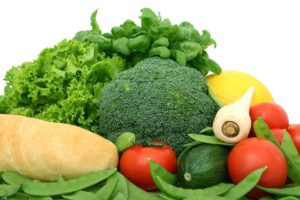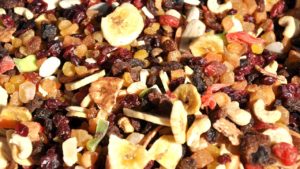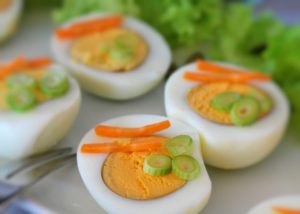Health and Wellness Articles

Nutrition, exercise, and a well-balanced diet are essential in restoring and maintaining good health. As well as getting enough rest and sleep. Let’s look at how nutrition can affect the body in more detail. The four basic nutrients are water, carbohydrates, proteins, and fats. You can help your body function at an optimal level by eating the healthiest forms and proper balance of each nutrient. Let’s break these down and see how they help your body.

Water
The human body is composed of about 70% water. Water is an important nutrient that is used in every function of the body. It helps to carry nutrients and waste in and out of cells. Water is necessary for digestive absorption, circulatory, and excretory functions, as well as for the use of water-soluble vitamins. To have good health a sufficient amount of water should be taken daily. The minimum amount of recommended is eight 8-ounce glasses per day, that’s a total of 64oz. There is a little bit of a debate about how much water a person needs. I think a lot depends on how often you work out. If you drink alcohol how much or if you drink coffee.
 Carbohydrates
Carbohydrates
Your body gets its energy supply from carbohydrates. Carbohydrates are found in fruits, vegetables, and dairy products. There are two groups of carbohydrates, simple carbohydrates, and complex carbohydrates.
Simple carbohydrates include fructose (fruit sugar) and sucrose (table sugar) and lactose (milk sugar) as well as several other sugars. For now, let’s look at the two types of carbohydrates and see which one is the better for you.
And how it affects your body. Both complex and simple carbohydrates turn into glucose in the body. Simple carbs break down faster into sugar in your system. They should be eaten in moderation. Complex carbs are a better choice of the two since it takes your body longer to break them down.
 Protein
Protein
Proteins are essential for the development and growth they provide our bodies with energy, and manufacture hormones, antibodies, enzymes, and tissues. Proteins also help maintain the bodies acid-alkali balance. The body breaks down protein into amino acids. There are two groups of proteins, complete proteins, and incomplete proteins.
Complete proteins have sufficient amounts of essential amino acids. Incomplete proteins have only some of the essential amino acids. These kinds of proteins are in grains, legumes, and leafy green vegetables. Complete proteins are found in meat, fish, poultry, cheese, milk, and eggs.
 Fats
Fats
The most concentrated form of energy available to the body is fat. Fat is made up of building blocks called fatty acids. Fatty acids are vital for the normal brain development in infants and children. There are three major groups of fatty acids.
Saturated, polyunsaturated and monounsaturated. Saturated fatty acids are mostly found in fatty meats, dairy whole milk, cream, cheese. Coconut oil, palm, kern oil and vegetable shortening is high in saturates.
It is important to note that the liver uses saturated fats to make cholesterol. Therefore, a diet high in saturated fats can raise significantly the blood cholesterol level. An abundance of polyunsaturated fatty acids is found in corn, soybean, safflower and sunflower oils.
Polyunsaturates may lower your total blood cholesterol. Taking large amounts of polyunsaturates may also lower your good cholesterol. Monounsaturated fatty acids are mostly found in vegetable and nut oils. These types of fats can reduce blood levels of bad cholesterol without affecting your good cholesterol.

 Carbohydrates
Carbohydrates Protein
Protein Fats
Fats